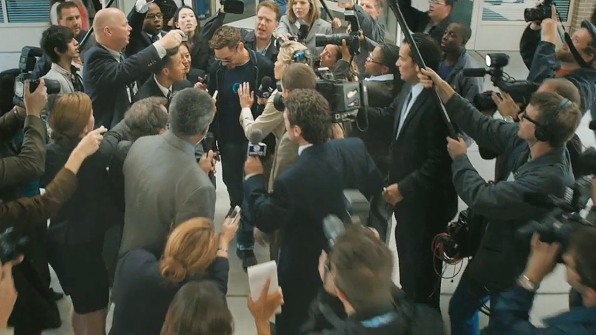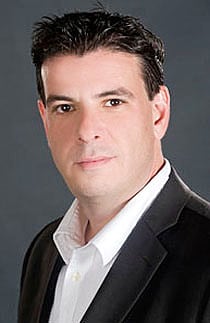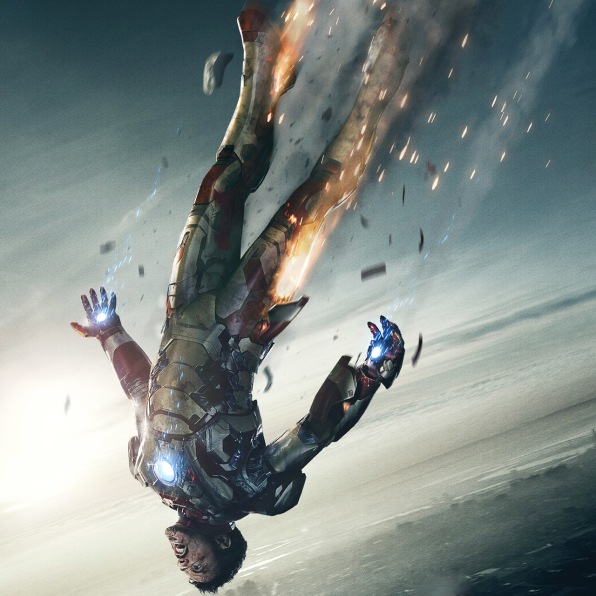How To Draw Iron Man Images
For those who might bristle at Hollywood's already formulaic approach to moviemaking and a new release slate where the grittily rebooted, the unnecessarily reimagined, and the too-easily accessible dominate, the sight of Vinny Bruzzese wasn't a welcome one.
When a spotlight was shone recently on Bruzzese, a Diet Coke-chugging, chain-smoking Hollywood executive who uses data to analyze movie scripts in order to gauge their playability, there was an online uproar. As everyone had long suspected, the bots had taken over Hollywood! Sure, everyone's heard of marketing meetings where MBAs argue that they can't sell a movie if the family dog dies in the third act, but the fact that Bruzzese actually sold these services for $20,000 a script was an outrage.
"Making films into Frankenstein Monsters," tweeted Pivot's Evan Shapiro in reference to the New York Times article that covered Bruzzese and his seemingly controversial service.
"Vincent Bruzzese, the enemy in Hollywood" was a tweet by Kontra.
Bruzzese said he was taken aback by some people's reactions to what he does and felt that his company–Worldwide Motion Picture Group, of which he is CEO–had been "slightly misunderstood."

"It's consulting; it's an evaluation of playability. It isn't cookie-cutter, and it's not an algorithm," he says, describing how he and his colleagues judge aspects of a screenplay–themes, narrative arcs, character traits–based on how movies with those same traits have performed in the past. For instance, bowling scenes "tend to pop up in films that fizzle," according to the article. (The Big Lebowski is apparently a big exception.)

If anything, Bruzzese calls his service "writer friendly," arguing that in the normal Hollywood process, screenwriters face a never-ending deluge of notes from studio executives, producers, and sometimes, yes, even marketers. And when audiences react badly to, say, an unresolved ending at a test screening, "it's going to be the studio that changes the ending, not the writer," he says.
With Bruzzese, the writer gets the opportunity to rework the ending early on, if he or she chooses.
Whether he is a friend or foe to scribes, Bruzzese's ability to tease out reasons why certain movies flop and others don't–or even why a movie makes $178 million as opposed to $158 million–seems to be valuable to a business that does everything it can to remove the risk from its hundred-million-dollar products. (Romanticize all you want about screenwriters having their vision respected all the way to the big screen, but that is sadly not the reality.) To get a better idea of how he works, and what insights he can provide, he shared with us his four reasons why Iron Man 3–which broke records, raking in $680 million its first 12 days of global release–is outdoing Iron Man 2, which grossed a total of $623 million at the worldwide box office. And it's not because of better marketing or more love for Robert Downey, Jr.
1. Modest Superheroes Work Best.
"The ideal superhero is a Spider-Man type. They don't take credit for things; they hide their arrogance. Iron Man is the polar opposite; he's an arrogantly likable superhero. That arrogance was played up to the hilt in Iron Man 2, but wasn't seen as much in 1 and 3, where there is a lot of self-deprecation. That plays better internationally. Japan is the most culturally sensitive to that; they respond to a modest superhero."
2. Superhero Fight Scenes Have to be Believable.
"There's a scene in Iron Man 2 where the Mickey Rourke character, the villain, is pounded against a speedway and hit with a Bentley three or four times. He's not wearing any armor. He should be dead, but he's not. Audiences object to things like that, particularly fanboys, who pay attention to those nuances. You can say 'suspend disbelief,' but you have to suspend disbelief within the rules."

3. So Do Origin Stories.
"There has to be a very clear motivation for a villain. The geeky guy who was rejected in the beginning is now going to use technology to take over the world. In Iron Man 2, Mickey Rourke's character develops this amazing technology in a hut somewhere in Siberia, I believe. It's not clear where he got the technology or what his origin story was. That narrative wasn't as tight as it is in Iron Man 3."
4. The Avengers Effect
"Iron Man 3 is really kind of playing a bit like an offshoot sequel to The Avengers, which had the biggest opening of all time. It references that movie."
How To Draw Iron Man Images
Source: https://www.fastcompany.com/1682939/why-iron-man-3-squashed-iron-man-2-according-to-hollywoods-data-whispering-script-consultant
Posted by: epleymisibromes.blogspot.com

0 Response to "How To Draw Iron Man Images"
Post a Comment